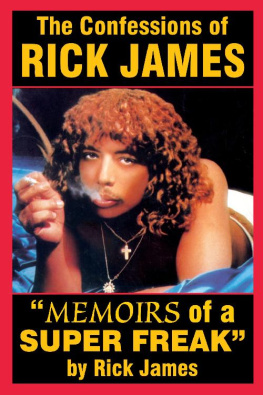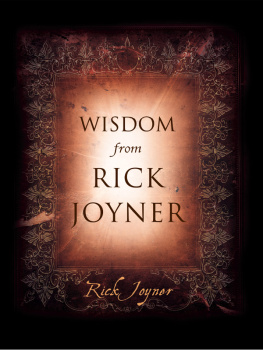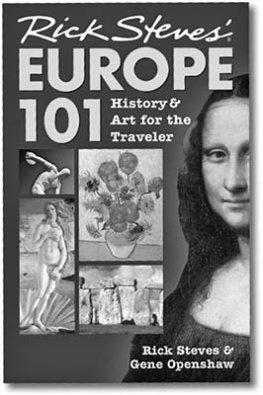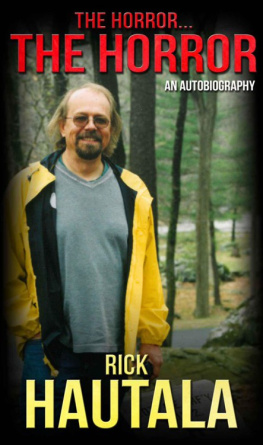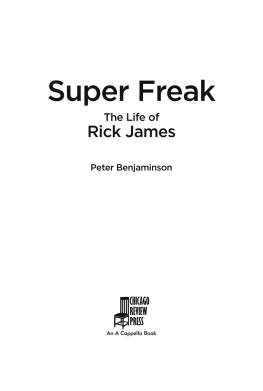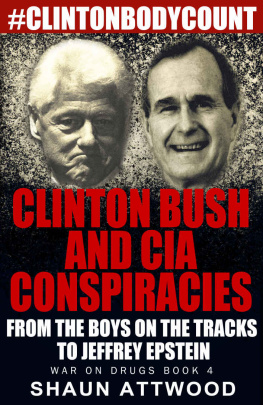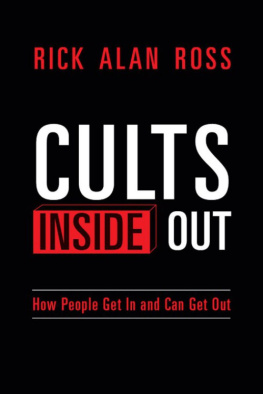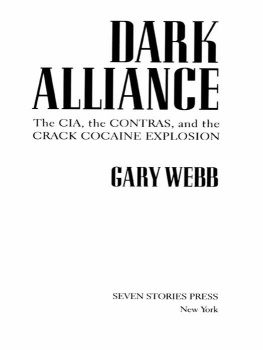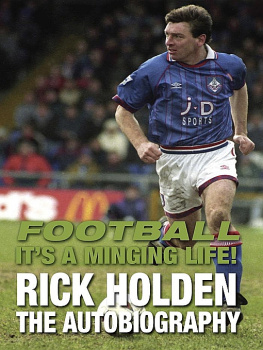Freeway
rICK
rOSS
The Untold Autobiography
BY Rick Ross
with Cathy Scott
2014 Freeway Studios, LLC. All rights reserved.
Cover Design (front and back cover) by Richard Yoo.
Photos inside book and Rick Ross author photo by Andres Herren.
No part of this book may be reproduced, stored in a retrieval system, or transmitted by any means without the written permission of Freeway Studios LLC.
Published by Freeway Studios 07/17/2014
ISBN-13: 978-1499651539
ISBN-10: 1499651538
Library of Congress Control Number: 2014910308
This book is printed on acid-free paper.
Because of the dynamic nature of the Internet, any web addresses or links contained in this book may have changed since publication and may no longer be valid. The views expressed in this work are solely those of the author and do not necessarily reflect the views of the publisher, and the publisher hereby disclaims any responsibility for them.
Dedication
To my parents, my mother Annie Mae Ross, who selflessly raised my brother, sister, cousins, and me, but also raised the neighborhood, opening her house to all the homies. If not for that, we would have been out on the streets. While we dont always agree, shes been there for me when Ive needed her; and to my late father, Sonny Leon Ross, from whom I inherited much of my determination. Even though I barely knew him, I have a lot of admiration and love for him. You both made me who I am today.
Contents
Dedication v
Foreword ix
Preface xi
Locked Up For Life
Bruthas And Bullets
Journey To The City Of Angels
Growing Up In The Hood
Gangsters, Guns, And Homies
The Next Arthur Ashe
Meal Tickets
Party Summer
66 Chevy Convertible
White Powder And Power
Shootout On 81st Street
Bloods N Turf
Wheeling And Dealing
Miami Or Bust
Drug Lord
Dirty Cops
Police Raids
Counting Money
Homies And Jail
Reverse Sting Operation
Addendum: Business Principles To Live By
Acknowledgments
About The Authors
Foreword
A few years ago, I was conversing with one of the most distinguished members of the City of Refuge, the indubitable Congresswoman Maxine Waters. During our conversation that typically focused on the welfare of our community, she asked if I knew Rick Ross. I immediately responded I had no clue who Rick Ross was, and, of course, she was flabbergasted at my ignorance in not being aware of such a notorious character as Freeway Rick Ross.
I abashedly attributed my unfamiliarity with such an infamous person to the fact that I was not a native of Los Angeles. However, to my chagrin, the Congresswoman made it clear that Rick was known globally. I found that out later when he did an interview with South Africas most-popular radio talk-show host, Thabo Touch.
My witlessness in not knowing who Freeway Rick Ross was seemed lucid in comparison to my obliviousness in knowing what a gangster looks like and how he comports himself. Meeting Freeway Rick caused me to rewrite my conceptualization of what gangster profiles entail. He looked like an unobtrusive, unintimidating specimen of a man. I was expecting a rough-and-tough mass of street-hardened protoplasm, not some reticent soft-spoken, small-statured man.
So now, only now, hanging with Rick has certified indelibly that there is an intellectual distinction between a gangster in a business environment and a businessman in a gangster environment. Rick puts it like this: I approached drug dealing as a businessman, even though the government associated me with gangs like the Hoover Street Crips (who were my neighbors for three years). His uncanny ability to separate the businessman from the gangster explains the reason for his inconspicuous dress and low-key demeanor. He had no desire to impress anyone with his physical appearance in the typical designer clothes and excessive bling-bling so common to the gangster, because any ostentatious display of ill-gotten wealth was bad for business. After all, he was a businessman in a gangster environment. The secret to his longevity was to remain in the shadows and not take to the stage with repeated encores.
His goal of getting in the drug business and then going legit is indicative of the mindset and entrepreneurial skills of any Corporate America magnate. His was a journey to escape poverty on the first bus leaving the station, but to Rick, he bartered away all of his legitimacy by selling drugs.
This Untold Autobiography is not only personal, but also historical in its implications. Rick chronicles the times by highlighting the social climate that made crack cocaine so desirable, and he points out that at the time, the cops in the area didnt know what crack was; they didnt associate the small white rocks they saw on homies as illegal drugs. All he knew was that people wanted it.
There is no question that with all his success and years of avoiding detection, along with the inordinate behavior of the government in Ricks case, he still is repentant and quite remorseful. I would not regard his exceptional life, expressed in this well-written autobiography, as a braggadocious attempt to extol the virtues of using God-given gifts to amass ill-gotten gains. In contradistinction, this work portrays the heart of a man who is seeking the opportunity, in whatever form, to right the wrongs he has done to his community.
Godspeed to you, Freeway Rick Ross.
Bishop Noel Jones, City of Refuge Church
Preface
The San Diego skyline was the vista from my cell on the maximum-security floor of the federal high-rise where I was housed. Inmates called it the Million-Dollar View. Looking out at the skyscrapers across San Diego Bay offered me time to reminisce. And reflect.
I ran from poverty, turning to drug dealing to get a head start as an entrepreneur. That was always the goal: Get into the drug business and then go legit.
As a young kid in grade school, I wanted to be a Crip, but my mom wouldnt have it. I never became a gangbanger, though I got close.
At Dorsey High School, playing tennis on the varsity team was my ticket out of the hood. It saved my life, even though my dream of a tennis career took a major shot when Coach discovered I couldnt read or write. I wasnt going to college after all, and I wasnt going to be the next Arthur Ashe either, so there was no point in staying in school. But tennis matches took me out of South Central after school and kept me from gangbanging.
It was at that crossroads, when my sports scholarship fell through, that I put down the tennis racquet and hit the streets. I kept a low profile with my street cred. Though I never flashed gang colors, I always had key relationships with people who did.
One day, I sat on my porch, dead broke, trying to work out ways in my head to earn cash when a kid from the hood called me. It was Mike McLoren.
I got a deal for you, he said.
I went to Mikes house and he pulled out a small plastic bag with white powder in it.
Its the new thang, man, he said as he waved the baggie in front of me. I can sell this for fifty dollars.
The powder was cocaine. The real shit. Coke was right in front of me, just like the character Youngblood Priest in the movie Super Fly . My homie, whod left South Central Los Angeles to attend college, explained how hed been selling powder cocaine to white students at San Jose State to make extra money. I barely heard the words students or San Jose, or even cocaine. I was totally focused on extra money. I wanted in on the game.
It was 1979 and I was 19 when I was introduced to the drug that would forever change my life. Powder cocaine appeared as a bright, shining star of opportunity. I bought my first baggie from Mike and doubled my money. I had no doubt it would make me rich in a way that up to that point Id only imagined.
Next page

